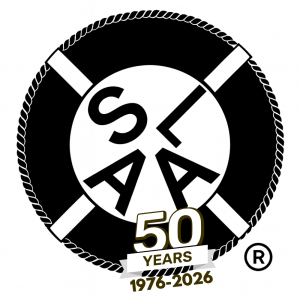The Question:
We have an individual meeting that wants to ban all homosexuals all transgenders and all females by changing the preamble at their individual group. This group has refused to send an intergroup representative to intergroup for at least a year. It is my opinion that the intergroup needs to remove this group.
There are two issues here: meetings that want to be closed except for a particular group, and the role/responsibility for Intergroup and groups in their area.
For the closed meeting issue:
Each Group is autonomous. They are free to create parameters for their meeting that creates a specialized meeting (single sex, LGBTQ focus, Transgender)
Need more information on why the meeting does not allow gay men or transsexuals or women.
By the Twelve Traditions, which define which groups may call themselves an SLAA group, the group defining its membership as open only to heterosexual males, does not fit that standard, unless it simply defines itself as a special purpose group, like a “men’s meeting”, and “LGBT” meetings.
The section from the basic text has the “Starting a SLAA Group” discouraging specialty meetings.
Single sex meetings have a purpose, they are a safe place for newcomers.
If you are still going to only single sex meetings after you’ve gone through the withdrawal phase (3-6 months), then you are hiding out, you need to be able to empathize with members of the opposite sex.
A board member has three requirements of sponsees:
Service Work
Attend mixed meetings after 3 months
Telephone calls.
The meeting should not be changing the preamble, it is SLAA approved literature and altering it may be a copyright infringement. If there are restrictions on attendance at the meeting, they should be addressed in either the meeting format or secretaries announcement, not by altering the preamble.
Per Tradition 4, “Every group had the right to be wrong”.
Creating an exclusive meeting might go against Tradition 5 “to carry its message to the addict who still suffers.” it depends on the number of meetings in the area. If there are only a few meetings in an area, then creating an exclusive meeting would limit access for addicts that don’t fit the criteria for attending a meeting.
Would suggest the meeting have a process dealing with any person not welcome at the meeting. (Suggest having 2 members of the meeting go out give them a local meeting list, any information about the program, and if needed a mini-meeting)
If there are addicts in the area that would benefit from a meeting but do not fit the straight male criteria, you could always start a new meeting open to all.
Not sure what you mean by “an individual member or group breaks the 12 traditions” What tradition do you feel is being broken. The information provided does not indicate a break of traditions.
We might want to invite the person who sent in this inquiry to attend the October call of the CSTCC meeting.
For the “what does intergroup do about this meeting” issue:
Each Intergroup is autonomous, you can choose to list or not list the meeting as you wish. We suggest doing some introspection at the intergroup level to see if you can reach a group conscious about this. Keep in mind our primary purpose “to carry its message to the sex and love addict who still suffers.”
It is enough to be sure they receive a communication that re-affirms their freedom to follow the group conscience of the local group.
Any two or more persons gathered together for mutual aid in recovering from sex and love addiction may call themselves an S.L.A.A. group, provided that as a group they have no other affiliation. Each group is autonomous except in matters affecting other groups or S.L.A.A. as a whole. Since these two criteria appear to be met, the local intergroup need not worry about it.
If the meeting is not supporting intergroup, we suggest sending an intergroup liaison to the meeting:
- To see if it is still an active meeting. (We don’t want a newcomer showing up at a meeting that has gone ‘dark’)
- To understand how the meeting functions.
- See whether they have modified the text of the SLAA Preamble or the criteria for attendance is in the non FWS approved portions of the meeting formats.
- Discuss with the meeting the reasons for the restrictions on members.
- See if they have a process for dealing with the non-welcome members that doesn’t discourage them from SLAA
Seems like it may be Personalities (Politics) before Principals.
Remember that the Steps, Traditions and Concepts are not rules they are only suggestions. As a committee we only make suggestions.


